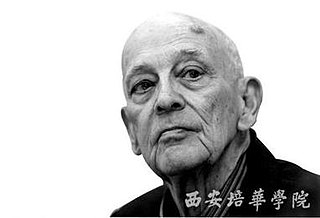A Quote by Samuel Hopkins
These Scriptures, therefore, are infinitely far from justifying the slavery under consideration; for it cannot be made to appear that one in a thousand of these slaves has done any thing to forfeit his own liberty.
Related Quotes
In most ages many countries have had part of their inhabitants in a state of slavery; yet it may be doubted whether slavery can ever be supposed the natural condition of man. It is impossible not to conceive that men in their original state were equal; and very difficult to imagine how one would be subjected to another but by violent compulsion. An individual may, indeed, forfeit his liberty by a crime; but he cannot by that crime forfeit the liberty of his children.
He [Stephen Douglas] is blowing out the moral lights around us, when he contends that whoever wants slaves has a right to hold them; that he is penetrating, so far as lies in his power, the human soul, and eradicating the light of reason and the love of liberty, when he is in every possible way preparing the public mind, by his vast influence, for making the institution of slavery perpetual and national.
The government of the enlightened king? His achievements blanket the world but appear not to be his own doing. His transforming influence touches the ten thousand things but the people do not depend on him. With him there is no promotion or praise - he lets everything find its own enjoyment. He takes his stand on what cannot be fathomed and wanders where there is nothing at all.
Slavery as an institution that degraded man to a thing has never died out. In some periods of history it has flourished: many civilizations have climbed to power and glory on the backs of slaves. In other times slaves have dwindled in number and economic importance. But never has slavery disappeared.
A wise man will not leave the right to the mercy of chance, nor wish it to prevail through the power of the majority. There is but little virtue in the action of masses of men. When the majority shall at length vote for the abolition of slavery, it will be because they are indifferent to slavery, or because there is but little slavery left to be abolished by their vote. They will then be the only slaves. Only his vote can hasten the abolition of slavery who asserts his own freedom by his vote.
Civil rights, as we may remember, are reducible to three primary heads; the right of personal security; the right of personal liberty; and the right of private property. In a state of slavery, the two last are wholly abolished, the person of the slave being at the absolute disposal of his master; and property, what he is incapable, in that state, either of acquiring, or holding, in his own use. Hence, it will appear how perfectly irreconcilable a state of slavery is to the principles of a democracy, which form the basis and foundation of our government.
As for slavery, there is no need for me to speak of its bad aspects. The only thing requiring explanation is the good side of slavery. I do not mean indirect slavery, the slavery of proletariat; I mean direct slavery, the slavery of the Blacks in Surinam, in Brazil, in the southern regions of North America. Direct slavery is as much the pivot upon which our present-day industrialism turns as are machinery, credit, etc. … Slavery is therefore an economic category of paramount importance.
If human life is in fact ordered by a beneficent being whose knowledge of our real needs and of the way in which they can be satisfied infinitely exceeds our own, we must expect a priori that his operations will often appear to us far from beneficent and far from wise, and that it will be our highest prudence to give him our confidence in spite of this.
Theocracy is the worst of all governments. If we must have a tyrant, a robber baron is far better than an inquisitor. The baron's cruelty may sometimes sleep, his cupidity at some point be sated; and since he dimly knows he is doing wrong he may possibly repent. But the inquisitor who mistakes his own cruelty and lust of power and fear for the voice of Heaven will torment us infinitely because he torments us with the approval of his own conscience and his better impulses appear to him as temptations.




































